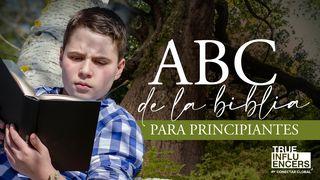Surprised By ParadoxMuestra

The Great I AND
At the end of the nineteenth-century, a group of Bible students living near Pittsburgh, Pennsylvania, began to study the Bible and publish their learning in what eventually became The Watchtower—Announcing Jehovah’s Kingdom. Although they affirmed the Bible as the source of their knowledge, the group (later called the Jehovah’s Witnesses) came to deny much of what historic Christianity had long affirmed, including the doctrines of the Trinity and the incarnation.
It’s true that the incarnation, which affirms that God became human in the person of Jesus Christ, is a mystery beyond rational comprehension. It’s a paradox that the holy, transcendent God through whom “all things were made,” also “became flesh and dwelt among us.” He did not, as it were, turn in his “God” badge at the door of the Milky Way. Instead, the I am assumed humanity as a second nature in the person of Jesus Christ while remaining fully God. God and man, man and God. As one theologian has said, it’s a mystery that can’t be comprehended but only gratefully acknowledged.
The incarnation is God’s burning bush: a mystery demanding a closer look. The word mystery appears twenty-eight times in the New Testament and only a handful of times in one Old Testament book, the book of Daniel (2:18-19, 27-30, 47; 4:6). In Daniel, as well as in the later apostolic writings, mystery refers to the hidden things soon to be revealed by God. They aren’t uncertainties insomuch as, according to Vine’s, they are “outside the range of unassisted natural apprehension [and] can be made known only by divine revelation, and [are] made known in a manner and time appointed by God, and to those only who are illumined by His Spirit.”
What was dark and hidden in the Old Testament, although not entirely absent, was the expectation that God would condescend to become human, clothing himself with flesh. He would do this to rescue his people from the power and penalty of sin: “For our sake he made him to be sin who knew no sin, so that in him we might become the righteousness of God.”
Although the Jehovah’s Witnesses came to deny the incarnation, Christ followers affirm that the great I Am is the person of Jesus Christ. Apart from the incarnation, there is no salvation.
Adapted from Surprised by Paradox by Jen Pollock Michel.
Escritura
Acerca de este Plan

While there are certainties in faith, at the heart of the Christian story is also paradox. Jesus invites us to look beyond the polarities of either and or in order to embrace the difficult, wondrous dissonance of and. This 6-day plan explores the "and"—of the incarnation, of the kingdom, of grace, and of lament—and invites us into the practice of wonder and worship.
More
Planes relacionados

¡Levántate! 7 Claves Para Levantarte Y Seguir.

1 Tesalonicenses: Modelos a imitar

Que El Mundo Crea

La Gracia. 7 Claves Para Vivir en Plenitud.

ABC De La Oración ... Para Principiantes.
Marcas De Un Discípulo

Testigos Del Milagro: La Primera Navidad

ABC De La Biblia Para Principiantes
